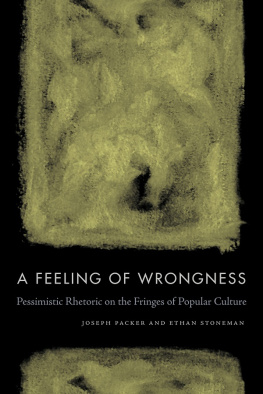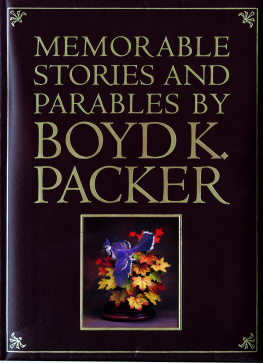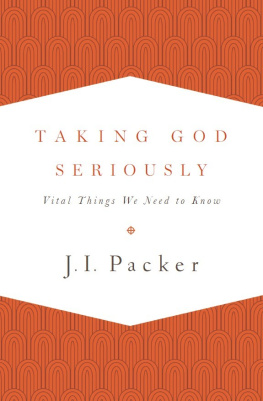A Feeling of Wrongness
A Feeling of Wrongness

Pessimistic Rhetoric on the Fringes of Popular Culture
Joseph Packer and Ethan Stoneman
The Pennsylvania State University Press
University Park, Pennsylvania
Library of Congress Cataloging-in-Publication Data
Names: Packer, Joseph, 1983 author. | Stoneman, Ethan, author.
Title: A feeling of wrongness : pessimistic rhetoric on the fringes of popular culture / Joseph Packer and Ethan Stoneman.
Description: University Park, Pennsylvania : The Pennsylvania State University Press, [2018] | Includes bibliographical references and index.
Summary: Examines case studies of popular culture as pessimistic rhetorical artifacts, and how non-traditional modes of argumentation can work rhetorically to overcome biases against pessimistic messagingProvided by publisher.
Identifiers: LCCN 2018031497 | ISBN 9780271082356 (cloth : alk. paper)
Subjects: LCSH: PessimismCase studies. | Popular culture. | Rhetoric.
Classification: LCC B829.P23 2018 | DDC 809/.93353dc23
LC record available at https://lccn.loc.gov/2018031497
Copyright 2018 Joseph Packer and Ethan Stoneman
All rights reserved
Printed in the United States of America
Published by The Pennsylvania
State University Press,
University Park, PA 168021003
The Pennsylvania State University Press is a member of the Association of University Presses.
It is the policy of The Pennsylvania State University Press to use acid-free paper. Publications on uncoated stock satisfy the minimum requirements of American National Standard for Information SciencesPermanence of Paper for Printed Library Material, ANSI Z39.481992.
CONTENTS
It is probably a dubious honor to be acknowledged in a book that explores lifes intrinsic badness, but thanks are in order.
I would like to start by thanking my coauthor. I was never a fan of group work in school, but writing this book has been a happy experience. One can see the enormous amount of work Ethan contributed simply by looking at the sharp increase in quality between this manuscript and my other published writing.
I also would like to thank my academic mentors: Tim ODonnell for saving me from a life in law and Ron and Mary Zboray for shaping me into someone capable of writing a book.
I would like to thank everyone at Penn State University Press, but specifically Kendra Boileau and Alex Vose for shepherding this project through its various stages.
Patricia MacCormack and Barry Brummett offered enormously valuable suggestions, all of which we incorporated. The manuscript would have been much weaker without their thoughtful analyses.
Finally, I would like to thank my family: my parents for always supporting and encouraging me, my sister for just being awesome, my partner Rebecca for being a brilliant academic mind to share ideas with.
Joseph Packer
Much I owe many.
First, my coauthor: Joe lit the fuse to this project years ago when he asked if I knew of Thomas Ligotti. I did but had never thought to write about him or his work. Joes initiative, enthusiasm, and diligence were the engines that made this thing possibleand overpowered any inertia on my end.
I also want to thank Dr. Steven Knepper at Virginia Military Institute. His morale-boosting , friendship, and intellectual curiosity should but dont come at a price.
I have benefited from many conversations with members of the Hillsdale College community, both in and outside the classroom. Special thanks are owed to Zoe Harness and Peyton Bowen, whose interpretations of various media texts were frequently illuminative and invigorating to my own work. Dr. Stephen Smiths encouraging words about the value of media courses at a traditional liberal arts college were what I needed to here when I needed to hear them. Informal cultural criticism with Dr. Lee Cole is one of the chief hidden influences on my approach to the various dispiriting and nihilistic texts Joe and I examined; a sincere thank you goes to him as well (and perhaps a sincere apology).
I can never adequately express to my wife, friend, and fellow academic Dr. Brita Stoneman my appreciation for all the support and invaluable writing time she has given me over the past eight years. I owe a similar debt to our three children, who have so understandingly put up with their academic parents.
With great fondness and gratitude, I acknowledge the tireless love and support of my parents, Bill and Kathy Stoneman, my sister, Maureen Stoneman, and my grandparents, William and Lillian Allmon and Edith and Jay Stoneman. You make pessimism difficult.
Ethan Stoneman
Rustin Cohle: Look, Id consider myself a realist, all right? But in philosophical terms Im whats called a pessimist.
Martin Hart: Uh, okay, whats at mean?
Rustin Cohle: Means Im bad at parties.
True Detective (2014)
The rhetoric of pessimism faces, at the outset, a rhetorical challenge that is prima facie insuperable: in proselytizing to the unconverted, pessimism rejects the datathings assumed as factsthat form the basis of common-sense reasoning and valuation.
All the same, even if pessimists found an audience willing to entertain their ideas, they would still face another significant hurdle, namely, that the denial of existential significance is at some odds with the affirmative function of rhetoric is a practicable, sense-making machine with which to impose order on a fundamentally disordered nature, to forge relationships between consciousness and a world of experience calling for meaning.
Quite apart from these structural tendencies, the rhetorical injunction to draw on audiences cognitive and affective prejudices would still pose a rather obvious problem for pessimism. Over and above rhetorics built-in propensity for meaning making, audiences still carry with them a variety of ingrained, nonideological defense mechanisms, many of which make traditional rhetorical appeals exceedingly inadequate for the rhetor-pessimist . Not to put too fine a point on it, most modern people are simply, and profoundly, hostile to pessimistic sentiment. Rhetoric therefore runs aground when the reality it discloses is not the reality that most people recognize as really real, that is, when the unconcealed reality is undiluted by beliefs in things such as linear progress, stability of meaning, and the intelligibility of the material world.
Contributing to this line of critique, the late Norwegian deep ecologist Peter Wessel Zapffe argues that such structures of thought function as reflexive anti-pessimistic strategies, which, when appropriately stimulated, serve to obstruct the rhetorical efficacy of pessimistic argumentation.sublimation. In confronting pessimistic arguments, audiences tend to deploy any or all of these four overlapping strategies as a nonconscious means of inoculating themselves against pessimisms basic anti-message of pure negation. Although Zapffe does not make use of rhetorical terminology, per se, the strategies name a group of rhetorical liabilities that negatively constrain peoples receptivity to pessimistic ideas and arguments: most people actively avoid pessimistic ideas (isolation), spending their time engaging in frivolities such as watching reality TV or sitcoms (distractions); others rationalize lifes suffering, relying on deeply ingrained structures of meaning and purposiveness (anchoring); still others welcome pain as an important part of life (sublimation). Essentially, each of these resistant strategies goes a long way in explaining why traditional models of rhetoric and argumentation tend not to win many new converts to pessimism: propositional arguments are easy prey for conflicting nonconscious practices and patterns of perceptual experience, especially when the former threaten to expose the latter to uncertainty and contingency. As a result, advocacy for pessimism, if it is to meet with rhetorical success, must address itself to negotiating these strategies, and this entails avoiding argument structures that are inherently anti-pessimistic .













